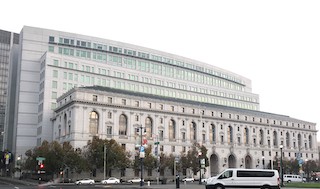In August 1977, in Humboldt County, a jury convicted Glenn Douglas Crites of first degree murder (Penal Code § 187), receiving stolen property (Penal Code § 496) and auto theft (Vehicle Code § 10851).
The judge sentenced him to an indeterminate term as prescribed under the law at the time. His sentence was affirmed on appeal.
Nearly forty-four years later, in March 2021, Mr. Crites filed a motion entitled, “Motion for Discovery and / or Correction / Expungement of Erroneous Information Affecting Liberty Interests and Due Process” in the Humboldt County Superior Court. His motion sought to correct information in his probation report from when his case was pending 44 years earlier that alleged he was involved in rape offenses in Oregon.
The Humboldt County criminal clerk’s office rejected the motion, explaining that it lacked jurisdiction to consider such a post-judgment motion.
In May 2021, Mr. Crites filed a motion for reconsideration, arguing that the court had jurisdiction under California Code of Civil Procedure § 916(b), a code section giving the trial court jurisdiction over enforcement of a judgment. The court again denied the motion, explaining that it lacked authority to consider the motion under People v. Davis (2014) 226 Cal. App. 1353 and People v. Picklesimer (2010) 48 Cal. 4th 330.
Mr. Crites then filed an appeal in the First Appellate District Court, contending the trial court had jurisdiction under Penal Code § 1203.01(a) as interpreted by In re Cook (2019) 7 Cal. 5th 439. In Cook, the California Supreme Court held that a juvenile offender who is eligible for a youth offender parole hearing but who was sentenced before the change in the law and thus was unable to provide the supplemental information contemplated in People v. Franklin (2016) 63 Cal. 4th 261, may file a motion under 1203.1 requesting “an evidence preservation proceeding as envisioned in Franklin.” Cook, supra, at 452, 458-459.
The Cook court explained that § 1203.01 authorizes the trial court to create a postjudgment record for the benefit of the Department of Corrections and Rehabilitation but does not require that “statements by the judge and prosecutor should be filed [i]mmediately after judgement has been pronounced.’” Cook, supra, at 453.
The court concluded that Penal Code § 1203.01 augmented the court’s inherent authority to craft necessary procedures under Code of Civil Procedure § 187 to preserve evidence as promptly as possible for the Board of Parole Hearings.
Mr. Crites’ appeal argued that while he was not eligible for a youth offender parole hearing, § 1203.01 applied with equal force to his motion, allowing him to augment the record with additional information suitable for parole consideration.
 Court of Appeal First Appellate District San Francisco
Court of Appeal First Appellate District San Francisco
The First Appellate District agreed with this expanded and “novel interpretation” of 1203.01 and reversed the order of the trial court denying Mr. Crites’ motion. While doing so, the appellate court reminded Crites that he was not entitled to the expanded evidentiary preservation procedures afforded a youth offender under Franklin, supra. Instead, Crites was only entitled to submit, as provided by § 1203.01(a), “a statement of [his] views respecting the defendant and the crime of which he was convicted.”
For clarity, it is helpful for the reader of this article to know exactly what Penal Code § 1203.01(a) provides, which is: “Immediately after judgment has been pronounced, the judge and the district attorney, respectively, may cause to be filed with the clerk of the court a brief statement of their views respecting the person convicted or sentenced and the crime committed, together with any reports the probation officer may have filed relative to the prisoner. The judge and district attorney shall cause those statements to be filed if no probation officer's report has been filed. The attorney for the defendant and the law enforcement agency that investigated the case may likewise file with the clerk of the court statements of their views respecting the defendant and the crime of which he or she was convicted.”
The section continues, stating that, “Immediately after the filing of those statements and reports, the clerk of the court shall mail a copy thereof, certified by that clerk, with postage prepaid, addressed to the Department of Corrections and Rehabilitation at the prison or other institution to which the person convicted is delivered. The clerk shall also mail a copy of any statement submitted by the court, district attorney, or law enforcement agency, pursuant to this section, with postage prepaid, addressed to the attorney for the defendant, if any, and to the defendant, in care of the Department of Corrections and Rehabilitation.”
We regard this opinion as significant in permitting augmentation of not only a prisoner’s court file, but his C-file for purposes of parole consideration and seems to invite the type of filings many defendants are eager to file. It may in fact “open the floodgates” of such filings.
The citation for the First Appellate District Court ruling discussed above is People v. Glen Douglas Crites (1st App. Dist., 2022) 77 Cal. App. 5th 494, 292 Cal. Rptr. 3d 553.
For more information about post-conviction relief, please click on the following articles:
 Court of Appeal First Appellate District San Francisco
Court of Appeal First Appellate District San Francisco